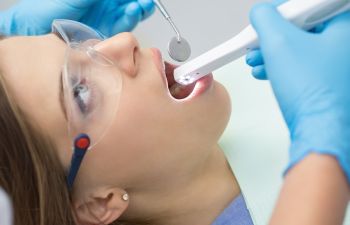Do you suffer from dry mouth? Some symptoms of dry mouth include frequent mouth sores or cracked lips, constant thirst, trouble speaking and difficulty tasting / swallowing. When you suffer from dry mouth you can have a burning sensation on your tongue, bad breath, a sore or hoarse throat.
If you are experiencing one or more of the symptoms listed above, you should mention the problem to your dental professional. Dry mouth isn’t just a few bothersome oral irritations; it can be the start of more serious oral problems.
Dry mouth, or xerostomia, can be the result of a number of factors. Dry mouth can be a side effect from certain medications, or the result of a certain disease. Certain medical treatments can cause dry mouth, including chemotherapy and radiation therapy for some cancers. Smoking or chewing tobacco can alter the production of saliva in your mouth and worsen dry mouth symptoms.
In addition to dealing with aggravating symptoms, dry mouth can increase your risk of the gum disease gingivitis, tooth decay and mouth infections like thrush. There are a number of non medical ways to help alleviate dry mouth. Drinking water is good for dry mouth and your overall health. Sucking on a sugar free candy or sugar free gum is sometimes soothing. It’s a good idea to breathe through your nose, rather than your mouth as often as possible. Some people find relief when they added a humidifier in their home.
It is important to protect your teeth if you suffer from dry mouth. You can use fluoride toothpaste while brushing and a fluoride rinse daily to combat dry mouth. Ask your dentist about a prescription for an oral rinse that helps dry mouth, as well as medication that helps with the body’s production of saliva. Working with your dentist to find a solution to your dry mouth will be better for your health and your teeth!














